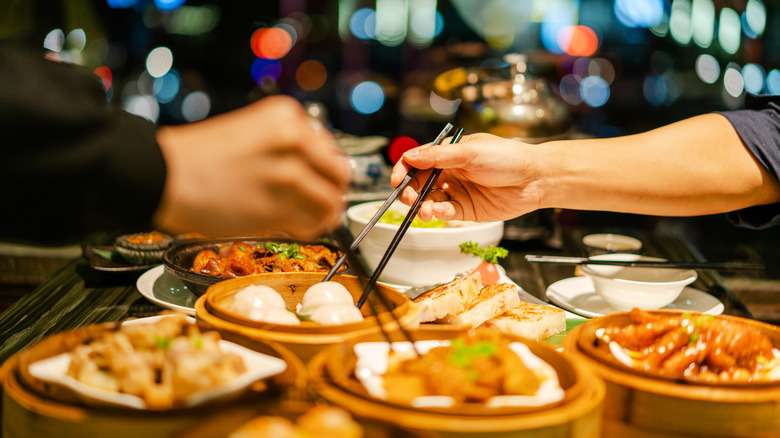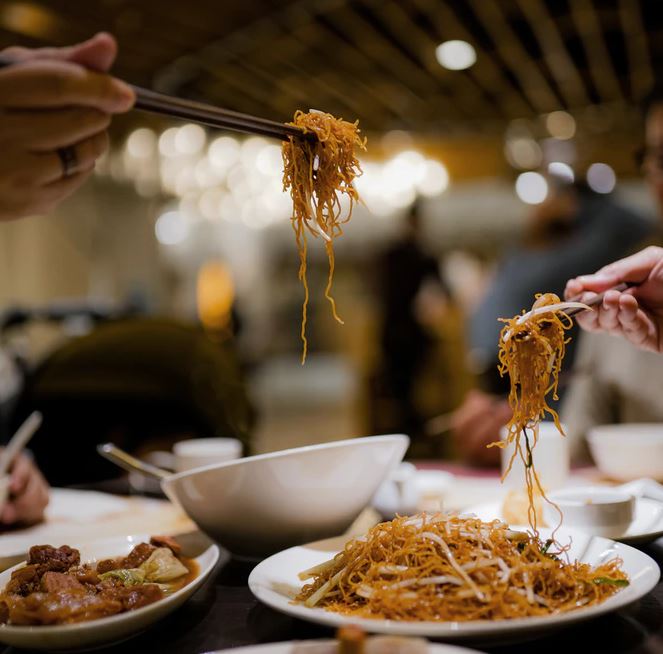20 Pro Suggestions To Explore Diverse Chinese Dishes
20 Pro Suggestions To Explore Diverse Chinese Dishes
Blog Article
Top 10 Suggestions For Regional Cuisines When You Shop In China
1. Do your research before you go Tip: Know what each region is known for. Suzhou is famous for silk, Jingdezhen porcelain and Tibet thangkas.Pro: This tool can help you focus on the shopping goal and reduces the amount of time wasted.Con: Requires the preparation of a team and familiarity with regional highlights.
2. Buy Locally to be Sure of the authenticityTIP: Buy products directly from their place of manufacture to ensure their authenticity and quality.Pro: Reduces the risks of copyright goods, and also helps local artisans.Cons: You might have to travel through less-visited regions or in rural areas.
3. Go to an artist's studio or visit an art galleryPick small workshops or artisan hubs over generic shops.Pro: Allows for a greater understanding of craft and guarantees that you're buying directly from creators.Pro: Handmade goods are more expensive and difficult to negotiate.
4. The cultural significance of languageGet to know the culture behind your items like cloisonnes, jade sculptures or calligraphy.Pro: Increases appreciation of the item and provides meaning.Pro: Takes time to fully understand the cultural nuances.
5. Be sure to check the quality by taking care.Tips: Check the workmanship of things like tea, embroidery or ceramics to be sure they meet your standards.Pro: You get what you bought.Pro: It requires some experience or guidance to find high-quality items.
6. Beware of the mass-produced productsSelect unique, hand-crafted items instead of mass-produced copies.Pro: You'll bring home an incredibly valuable and unique souvenir.Con: It is more costly and difficult to locate genuine workmanship.
7. Compare PricesTip: Compare prices at several shops or stalls for the identical item.Pro: Aids you determine acceptable price points and prevents being overcharged.Con: Time-consuming in big markets, and especially.
8. Purchase Tea from Reliable VendorsGo to reputable tea stores in areas like Hangzhou or Fujian to find Longjing (Dragon Well ) or Tieguanyin) teas.Pro: Ensures authentic and high-quality.Con: Tea of high quality can be expensive and is difficult to prove by newcomers.
9. Understand Local CustomsIn certain areas there are certain regions where sellers are likely to demand that to negotiate.Pro: Provides a pleasant culture to your shopping.Uncertainty about customs can result in uncomfortable situations
10. Pack SmartlyTIP: Consider how you'll transport fragile or bulky regional specialties such as silk or ceramics back to your home.Pro: This service guarantees that your products arrive with no damage.Con: Adds logistical challenges and costs that could be associated with shipping.
Advantages of shopping for local SpecialtiesUnique souvenirs.Cultural Immersion: Buying local specialty foods lets you be part of the area's heritage and craftsmanship.Support for Artists Direct purchases made from artisans help local economies.Pros and Cons of Shopping Regional SpecialtiesSecurity: There is a risk of purchasing counterfeits or inferior quality versions.Moving large or fragile items can be difficult.More expensive: Real regional goods can be expensive particularly handcrafted items.Following these tips will help you shop with confidence for local cuisine and make sure that the purchases you make in China will be memorable. Take a look at the recommended taste the best dishes across China for website advice including explore local Chinese cuisine, China flavorful food culture, a taste of China best local foods, journey through China food culture, food guide to China best cities, Chinese cuisine you need to try, a guide to eating like a local in China, regional Chinese cuisine highlights, discover hidden food gems in China, China culinary heritage and more.
Top 10 Tips For Visiting Chinese Temples And Avoid Paying Fees
1. Examine Entrance Fees on AdvanceTip: Many famous temples have an entry fee that can vary between Y=20 and Y=200 or more. For a budget-friendly trip check out ticket prices prior to you visit.Pro: It can help you stay clear of surprises by assisting to determine the exact amount of cash required for digital payments or cash.Con: Additional costs such as special exhibition fees may be unexpected.
2. Bring cash or digital paymentTip: Some temples do not accept credit cards or other popular Chinese payment methods, like WeChat Pay.Pro: No delay in payments.Cons: There are few options for foreigners unfamiliar with or not used to electronic payment applications.
3. You can find photography signs by searching for them.It is always a good idea to check if there are warnings on the walls which state what you're allowed to take photos. Some temples don't allow photography within sanctuaries, or near sacred artifacts.Pro: It prevents unintentional disrespect or violation of rules.Con: There might be different rules for different temple areas, which requires special attention.
4. Avoid Flash PhotographyBeware of using flash in areas where photography is allowed, as it may damage artifacts and disturb worshippers.Pros: The temple's surroundings is preserved, as are the art and culture. preserved.Con: Low-lighting can lead to less-than-ideal photographs.
5. Respect the Privacy of WorshippersTips: Do not take pictures of people who are praying or participating in religious rituals unless you have their permission.Pro: Displays the sensitivity to culture, while respecting your personal space.Con: It could restrict your ability to capture the temple's atmosphere completely.
6. Drones aren't allowed.Tips: Drones are generally prohibited close to temples. If you intend to utilize a drone to take photography from the air, you should check local laws.Pro: No fines and and no confiscation.Cons: Not many opportunities to capture unique angles for photography.
7. Be ready for any additional costsTIP: Some temples will charge extra for permits if your equipment is professional such as DSLRs as well as tripods.Pro: Makes sure you can capture high quality photos legally.Con: Increases general travel costs.
8. Dress sensuallyDress respectfully when visiting temples. Unsuitable dress code could result in being denied entry or be restricted within certain zones.Pros: You will be able to blend in and show respect to the religious setting.Con: Additional preparation is required particularly in hot weather.
9. Avoid Crowded Times when Taking PhotosGo to the park in the early hours of the morning or later in the afternoon to avoid the crowds. This will make it easier for photographers to snap photos without being obstructed.Pro: Improves the quality of images and experiences.Con: Needs to adjust your schedule, which might not be ideal in all situations.
10. If you're not sure, Request permissionIf you are unsure about the photography rules you should inquire with the temple staff for clarification, or look over the signs.Pro: Helps you avoid breaking rules unintentionally.Con: Language barriers might make communication difficult.
Pay attention to Fees and Photographic Rules.Cultural Respect: Respect local customs, religious practices and other cultural aspects.Preservation of artifacts and objects: Avoids the destruction of fragile structures and art.Positive Experiences Does not engage in confrontation with worshippers or temple staff.Legal Compliance - Helps avoid penalties for violating photography rules.The negatives of paying fees and photography guidelinesCosts could rise: The cost of photography or entry permits, as well as additional fees for entry into the park could add up.Restricted Creativity: Limitations can make it challenging to capture the perfect shot.Language Barriers: Unability to understand local signage or to communicate with staff.Research can be time-consuming. Planning ahead takes more effort.Respecting the fees and rules for photography will ensure that you enjoy a relaxing legal, respectful, and safe trip to China's beautiful temples, while maintaining their cultural and spiritual integrity. Have a look at the most popular culinary wonders of China for site info including explore diverse Chinese dishes, explore the riChness of Chinese food, experience traditional Chinese food, Chinese food culture guide, must-try foods in China, China culinary hotspots, Chinese food culture guide, the ultimate guide to Chinese cuisine, Chinese food culture guide, a deep dive into China food culture and more.